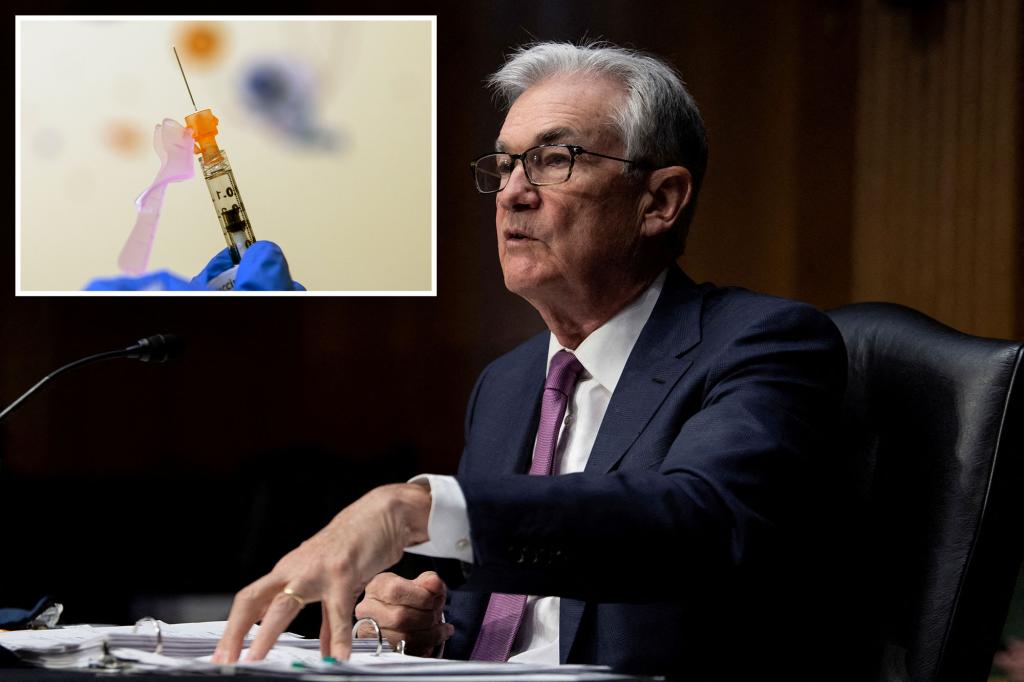For an economist as I am, Federal Reserve Chair Jerome Powell’s press conferences have become ever more painful to watch.
It’s not because of Powell’s polished answers to the journalists’ queries.
Rather, it’s that the journalists don’t ask Powell the tough and obvious questions that might indicate how misguided is the Fed’s data-dependent and overly hawkish monetary-policy stance.
Milton Friedman taught us inflation is “always and everywhere a monetary phenomenon.”
Why then does Powell not so much as mention the massive swings in the broad money supply (M2) under his watch when discussing the economic outlook?
After all, we’ve gone from a situation in which the broad money supply increased by a staggering 40% from the start of 2020 to the end of 2021 to a situation where it is now actually contracting for the first time since the Fed began compiling these numbers in 1959.
Journalists fail to ask the basic question these swings prompt: In the same way as the ballooning money supply in 2020 and 2021 led with a lag to a surge in inflation to a multi-decade high of more than 9% by June 2022, might not the unprecedented money-supply contraction we’re now seeing lead with a lag to a recession and a renewed bout of deflation next year?

And might the Fed’s continued interest-rate hikes and aggressive quantitative tightening not lead to a further contraction that would put excessive downward pressure on the economy?
A recent Federal Reserve study suggested that as many as 37% of US companies have distressed debt situations.
That is a disturbingly high number for this stage of the credit cycle.
We know, meanwhile, that commercial-property owners are struggling with low occupancy rates as post-COVID more workers choose to work from home.

And we know that over the next two years, those companies have $500 billion a year to roll over at very much higher interest rates than they are now paying.
Yet the journalists do not ask Powell whether the unusually rapid pace at which the Fed has raised interest rates by 525 basis points over the past year at a time many companies have distressed debt situations might not lead to a real credit crunch in 2024 when we will see a wave of corporate debt defaults.
Something that’s allowed the US economy to withstand the Fed’s aggressive monetary-policy tightening to date has been the excess savings that were built up on the back of the large COVID-related government checks sent out to households and companies.
But another recent Federal Reserve study suggests that by now those excess savings have all too likely been depleted.
Yet the journalists don’t ask how much sense it makes for the Fed to keep raising interest rates when an important plank supporting the economy has been or is about to be removed.
The journalists also seldom ask Powell how economic developments abroad might affect our economy.
This is all the more surprising when China, the world’s second-largest economy, is struggling with the bursting of its outsized property and credit market bubble.
Might not a slowing Chinese economy put further downward pressure on international commodity prices and have a meaningfully dampening effect on the US and world economies?
By not asking Powell the right questions, the journalists do us a disservice.
They allow the Fed chief to persist with an overly restrictive policy that pays too little heed to changing monetary, financial and external economic developments and largely ignores the long and variable lags with which monetary policy operates.
American Enterprise Institute senior fellow Desmond Lachman was a deputy director in the International Monetary Fund’s Policy Development and Review Department and the chief emerging-market economic strategist at Salomon Smith Barney.
𝗖𝗿𝗲𝗱𝗶𝘁𝘀, 𝗖𝗼𝗽𝘆𝗿𝗶𝗴𝗵𝘁 & 𝗖𝗼𝘂𝗿𝘁𝗲𝘀𝘆: nypost.com
𝗙𝗼𝗿 𝗮𝗻𝘆 𝗰𝗼𝗺𝗽𝗹𝗮𝗶𝗻𝘁𝘀 𝗿𝗲𝗴𝗮𝗿𝗱𝗶𝗻𝗴 𝗗𝗠𝗖𝗔,
𝗣𝗹𝗲𝗮𝘀𝗲 𝘀𝗲𝗻𝗱 𝘂𝘀 𝗮𝗻 𝗲𝗺𝗮𝗶𝗹 𝗮𝘁 dmca@enspirers.com


